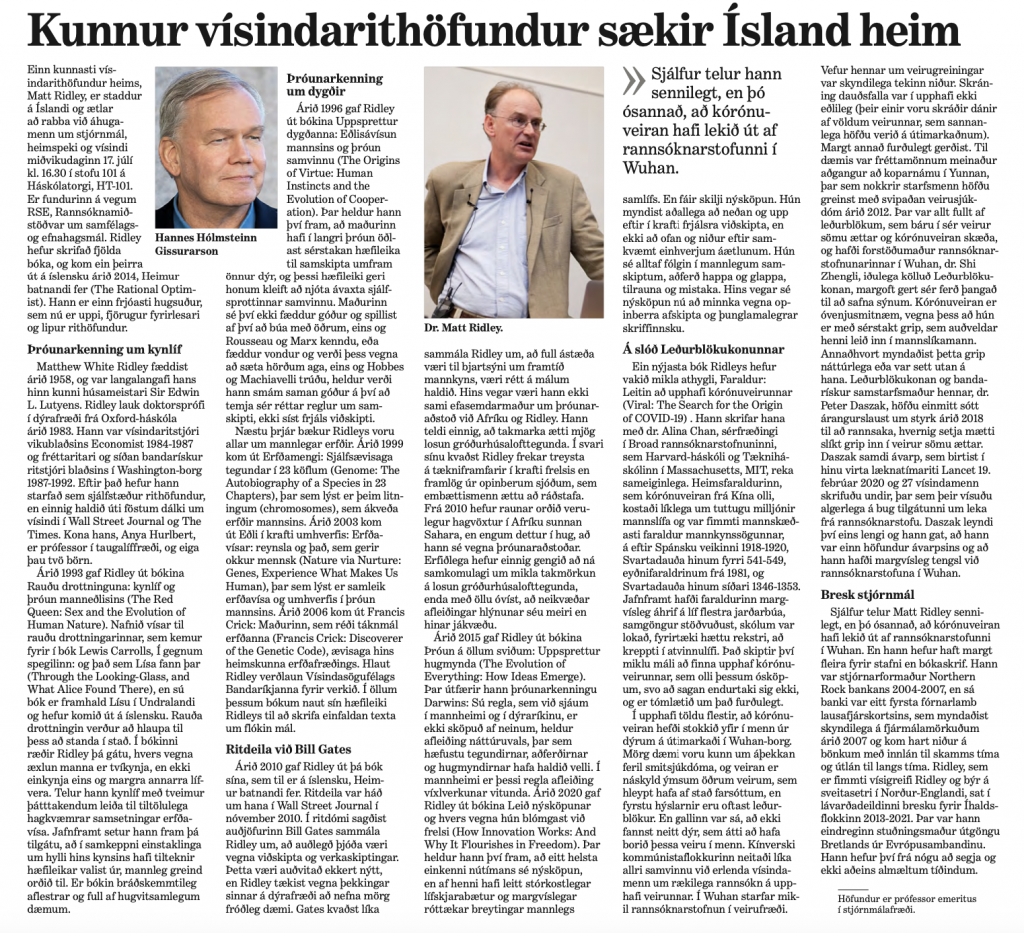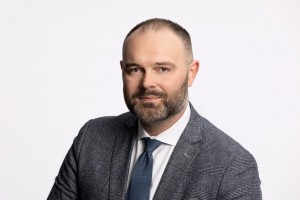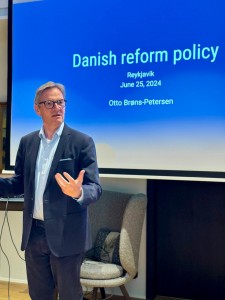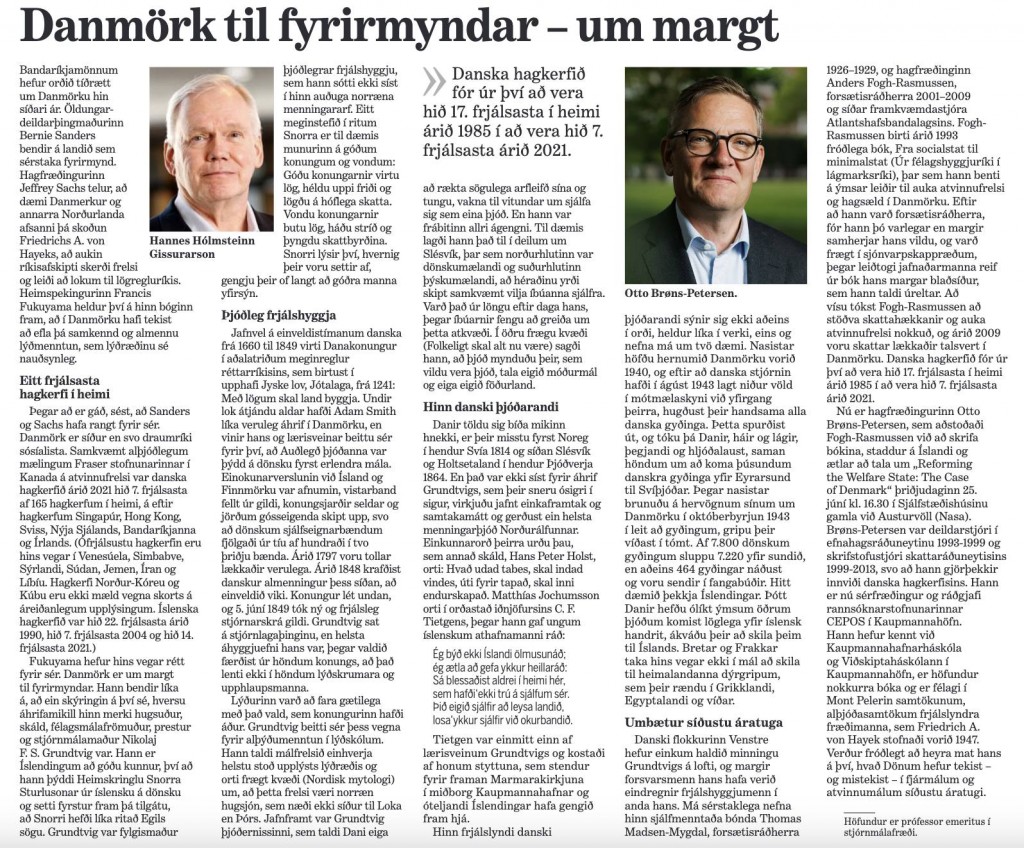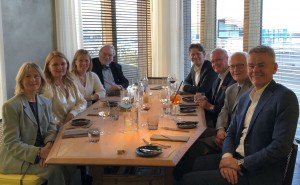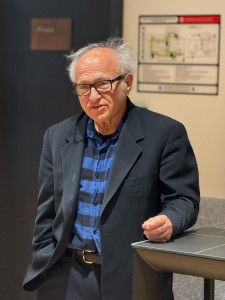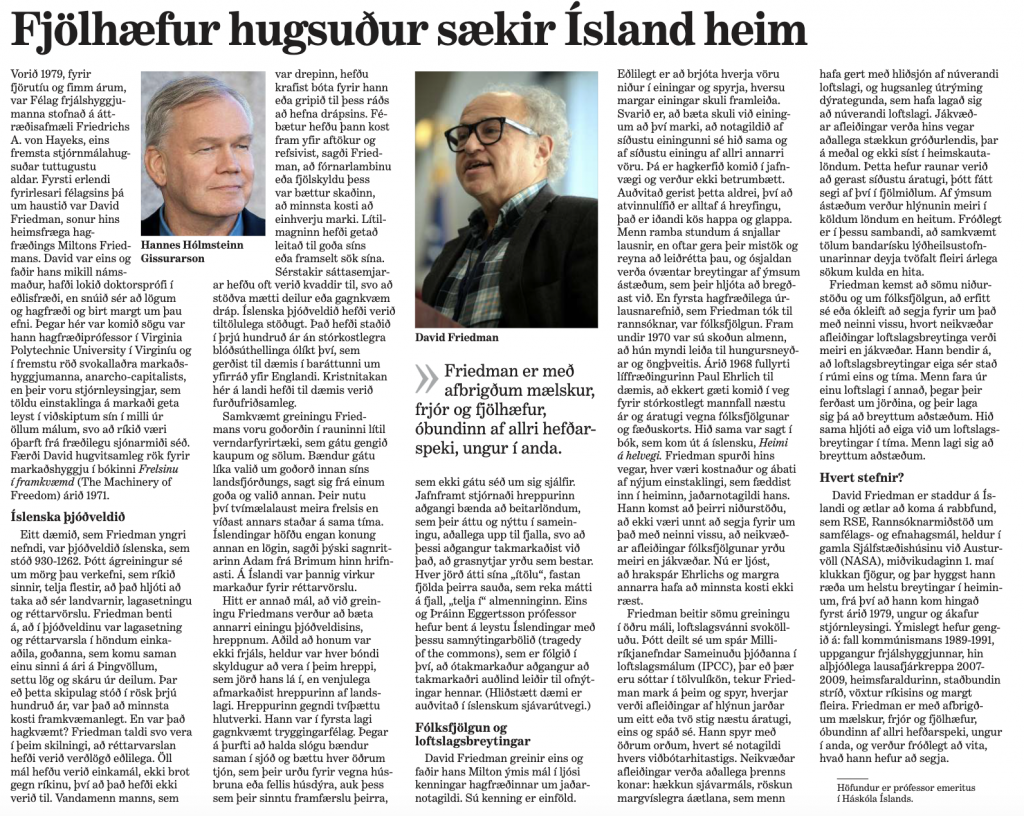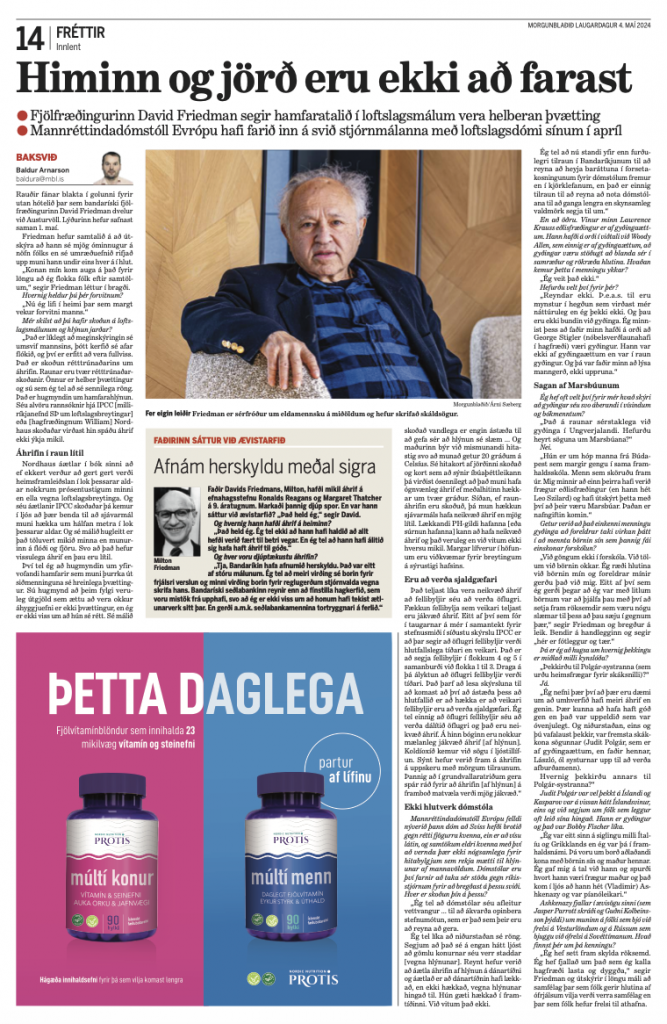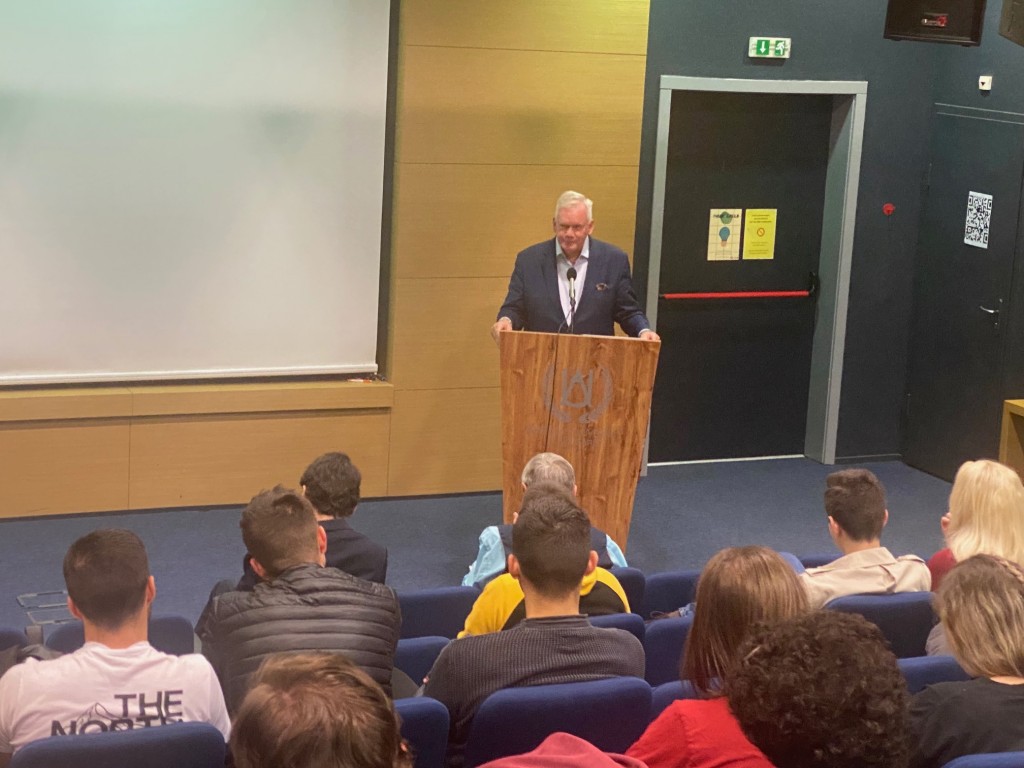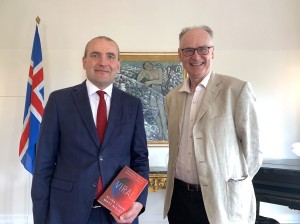 Probably the covid virus which caused the 2020–2022 worldwide pandemic leaked out of a laboratory in Wuhan in China, although it is well nigh impossible to prove this, science writer Dr. Matt Ridley said at a meeting at the University of Iceland on 17 July 2024, sponsored by RSE, the Icelandic Research Centre in Social and Economic Affairs. Originally Ridley had thought that the virus had been transmitted from some animal, as had been the case in previous epidemics. But no route of transmission has been discovered, while increasing circumstantial evidence points to the Wuhan Institute of Virology where experiments with similar viruses had been conducted. The problem is, Ridley observed, that the Chinese authorities resolutely refuse to provide any information about the virus and try hard to hamper all independent research into its origin. A zoologist by training, Ridley co-authored in 2021 a book with molecular biologist Alina Chan, Viral: The Search for the Origin of Covid-19. In a visit to the residence of the President of Iceland, Dr. Gudni Th. Johannesson, Ridley gave him a copy.
Probably the covid virus which caused the 2020–2022 worldwide pandemic leaked out of a laboratory in Wuhan in China, although it is well nigh impossible to prove this, science writer Dr. Matt Ridley said at a meeting at the University of Iceland on 17 July 2024, sponsored by RSE, the Icelandic Research Centre in Social and Economic Affairs. Originally Ridley had thought that the virus had been transmitted from some animal, as had been the case in previous epidemics. But no route of transmission has been discovered, while increasing circumstantial evidence points to the Wuhan Institute of Virology where experiments with similar viruses had been conducted. The problem is, Ridley observed, that the Chinese authorities resolutely refuse to provide any information about the virus and try hard to hamper all independent research into its origin. A zoologist by training, Ridley co-authored in 2021 a book with molecular biologist Alina Chan, Viral: The Search for the Origin of Covid-19. In a visit to the residence of the President of Iceland, Dr. Gudni Th. Johannesson, Ridley gave him a copy.
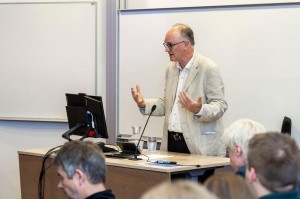 Hannes H. Gissurarson, Professor Emeritus of Politics at the University of Iceland, chaired the meeting. After his talk, Ridley was asked what could possibly refute the lab-leak theory. ‘The discovery of an animal infected before the virus jumped into humans,’ he replied. Ridley estimated that about 28 million people had been killed by the virus while the pandemic had also been economically and socially very costly. It was understandable that the Chinese authorities did not want to assume responsibility for this calamity. But worse still was that some virologists and other scientists in the West had systematically tried to obscure evidence suggesting a leak from the Wuhan laboratory, although they were well aware of it, as was revealed in their emails. The Icelandic daily Morgunbladid quoted Ridley favourably in a leading article on 20 July, upon which the neurologist Dr. Kari Stefansson, Director of deDode genetics, published an article in the newspaper on 23 July where he asserted that Ridley’s lab-leak theory was amusing, but also unscientific because it was not testable. There was not, according to Stefansson, sufficient evidence to prove or to refute it. Professor Gissurarson replied in Morgunbladid 27 July that the theory was indeed refutable as Ridley had pointed out at the meeting: the refutation would be the discovery of an animal infected before the virus jumped into humans, as had been the case in previous epidemics. The paucity of evidence was actually, Gissurarson submitted, yet another fact in favour of the lab-leak theory because it was brought about by the Chinese authorities which behaved as if they had something to hide.
Hannes H. Gissurarson, Professor Emeritus of Politics at the University of Iceland, chaired the meeting. After his talk, Ridley was asked what could possibly refute the lab-leak theory. ‘The discovery of an animal infected before the virus jumped into humans,’ he replied. Ridley estimated that about 28 million people had been killed by the virus while the pandemic had also been economically and socially very costly. It was understandable that the Chinese authorities did not want to assume responsibility for this calamity. But worse still was that some virologists and other scientists in the West had systematically tried to obscure evidence suggesting a leak from the Wuhan laboratory, although they were well aware of it, as was revealed in their emails. The Icelandic daily Morgunbladid quoted Ridley favourably in a leading article on 20 July, upon which the neurologist Dr. Kari Stefansson, Director of deDode genetics, published an article in the newspaper on 23 July where he asserted that Ridley’s lab-leak theory was amusing, but also unscientific because it was not testable. There was not, according to Stefansson, sufficient evidence to prove or to refute it. Professor Gissurarson replied in Morgunbladid 27 July that the theory was indeed refutable as Ridley had pointed out at the meeting: the refutation would be the discovery of an animal infected before the virus jumped into humans, as had been the case in previous epidemics. The paucity of evidence was actually, Gissurarson submitted, yet another fact in favour of the lab-leak theory because it was brought about by the Chinese authorities which behaved as if they had something to hide.
The day before the meeting, Professor Gissurarson published an article about Ridley and his best-selling books on science:
 Ridley is a frequent visitor to Iceland. In 2012 he gave a talk at the University of Iceland about his book The Rational Optimist, and in 2014 AB, the Public Book Club, published an Icelandic translation of the book, with Ridley giving a talk about it at a seminar held by AB. On that occasion, former Prime Minister David Oddsson gave a dinner for Ridley at his home. After the meeting this year, Ridley attended a dinner in his honour arranged by Professor Gissurarson at the Reykjavik restaurant Grill Market, and attended by former Prime Minister Geir H. Haarde, Professor Thor Whitehead, Ridley’s Icelandic publisher Jonas Sigurgeirsson, RSE Board members Halla Sigrun Mathiesen and Einar Sigurdsson, and Ridley’s Icelandic friend from his fishing trips Magnus Sigurdsson.
Ridley is a frequent visitor to Iceland. In 2012 he gave a talk at the University of Iceland about his book The Rational Optimist, and in 2014 AB, the Public Book Club, published an Icelandic translation of the book, with Ridley giving a talk about it at a seminar held by AB. On that occasion, former Prime Minister David Oddsson gave a dinner for Ridley at his home. After the meeting this year, Ridley attended a dinner in his honour arranged by Professor Gissurarson at the Reykjavik restaurant Grill Market, and attended by former Prime Minister Geir H. Haarde, Professor Thor Whitehead, Ridley’s Icelandic publisher Jonas Sigurgeirsson, RSE Board members Halla Sigrun Mathiesen and Einar Sigurdsson, and Ridley’s Icelandic friend from his fishing trips Magnus Sigurdsson.


